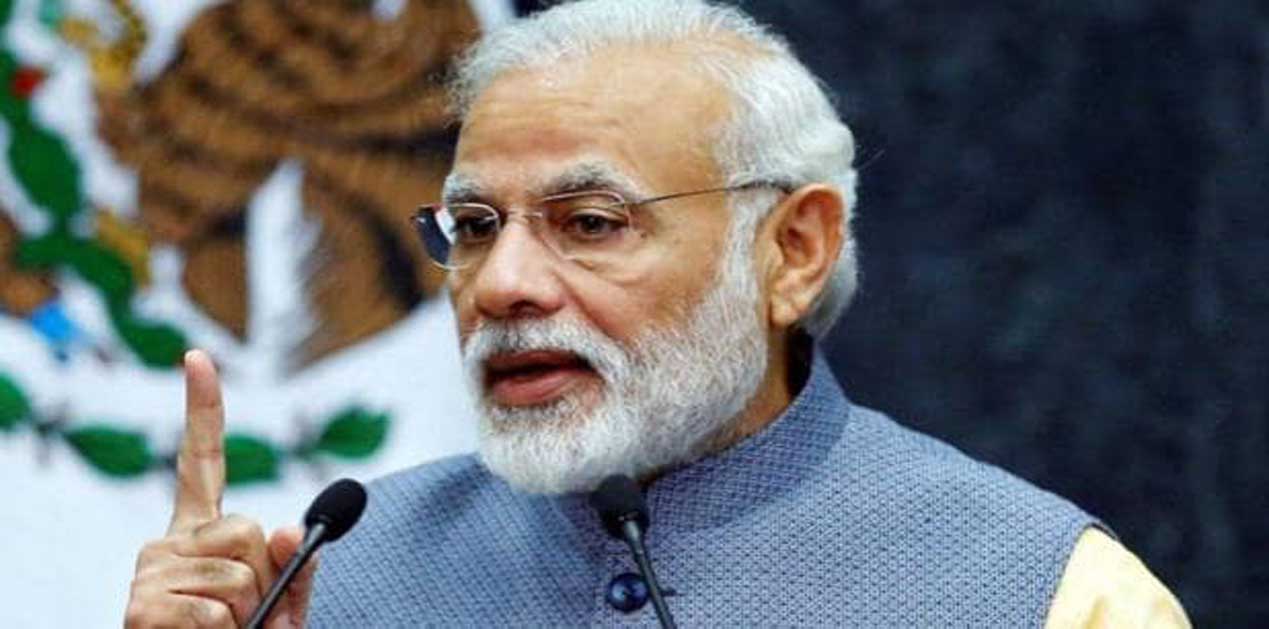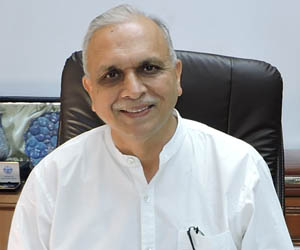In his speeches, given after the election results were out, Prime Minister Modi has dwelt at length on the concept of New India. He said that while 2014-19 was devoted to denting poverty, the second term will address the task of building a ‘New India’ by fulfilling the aspirations of the people. The New India will be an aspirational India. Two key pillars of new India will be removing poverty and raising India’s status in the world. The two together will transform India into Vijayi Bharat or victorious India.
But how will a New India be built? Prime Minister Modi gave some hints of his strategy for building New India. He outlined a vision and showed the way ahead. Essentially, the focus of his government will be to follow inclusive policies.
The first ingredient of New India project is winning trust or Vishwas of all the people of India. Modi’s critics have repeatedly held that BJP’s philosophy is divisive and majoritarian. According to them, large sections of minorities, particularly the Muslims amounting to nearly 17 crore of the population, are feeling left out, and are living in ‘fear’. This is an exaggerated claim. Modi directly addressed this aspect in his speech to the NDA’s elected representatives on 25th May 2019. He said:
“For many years now minorities have been made to live in an atmosphere of a fake sense of fear, while bread and butter issues or development of genuine leadership within those communities was ignored, only to harvest them as a vote bank. We have to, in this term, shatter this illusion of fear. Just as in the first war of independence in 1857 all communities fought as one, and as we move towards the 75th year of independence in 2022, we have to foster the same spirit of unity and inclusiveness that prevailed at that time.”
This reassurance is necessary to build trust. Even a thumping majority would not help if people do not trust the system and perceive that they have been left out for whatever reasons. That is why Modi has placed a strong focus on inclusivity. Significantly, he expanded the earlier slogan of Sabka Saath, Sabka Vikas by adding Sabka Vishvas to it. He has exhorted the newly elected Members of Parliament to win everybody’s trust irrespective of whether or not they voted for them.
The second ingredient of New India would be bringing about a synergy between national ambitions and regional aspirations. The Centre and the states must work in harmony with each other. Modi has given a new slogan – Nara - to emphasise that the synergy between National Ambitions and Regional Aspirations is vital to India’s forward march. A mismatch between the two can be disastrous for the country.
The third ingredient is ending poverty and empowering those who are working towards this goal. This is a very important enunciation of Modi’s philosophy of building New India. The 2019 mandate has been interpreted as the mandate for development, going beyond casts creeds religions and other differences and focusing on non-discriminatory development. India cannot be poor and yet be a leading country in the world. The relentless focus on poverty elimination will strengthen India.
The fourth ingredient of New India will be realising high quality governance. This will require thoroughgoing governance reforms and a rethink on how we govern ourselves. Strengthening of the institutions, improving synergy amongst them, modernising them to the needs of the 21st century is absolutely essential. India will need electoral reforms, judicial reforms, police reforms, administrative reforms and so on. These have been shelved for too long a time. Time has come to tackle them in the next five years. Implementation cannot improve unless the system of governance, which is showing signs of ageing, is improved. In recent years many institutions have rightly been questioned for their lack of commitment and efficacy. Synergy amongst institutions so that they don’t work on cross purposes is equally important.
The fifth ingredient of New India will be nationalism. Every Indian must feel proud of India despite its faults. The commitment to a higher national cause will unleash the collective energy of the people. The spirit of the freedom struggle, when people sacrificed their lives for India’s freedom, needs to be revived in present phase to take India to newer heights. Nationalism need not be a dirty word as it has become in the West. The belief in one’s civilisational and cultural values is important. The core values must be reflected in our policies. Individual’s rights are of course important as they are guaranteed in the Indian Constitution. At the same time the duty of the individual to national cause is equally important.
The sixth ingredient is the need for the elected representatives to maintain direct connect with the people at all times. Prime Minister Modi exhorted the newly elected MPs to approach the people with humility and imbibe the spirit of sewa or service. The National Democratic Alliance (NDA) MPs were advised to give up VIP culture to set an example. Our MPs have often failed the service test, thus discrediting the entire political class. All those on whom the responsibility of governance lies, including the bureaucrats, need to imbibe the sewa bhava or the spirit of service and sacrifice.
How practical is Prime Minister’s vision for a New India and how effective is his strategy for building a strong India? Does everyone in the NDA share his views from the heart? Of course, the Prime Minister is in a strong position to direct the NDA constituents in the right direction. However, Indian politics has deteriorated over the years. Few politicians have shown the mettle to outline a broad national, inclusive vision. They have usually been concerned with winning votes at any costs. Elections have become too costly. The use of black money remains unchecked. Greater transparency is required in the funding of the political parties. The politics of vote banks has been rampant. The spirit of sacrifice which the Prime Minister has highlighted is generally missing.
The Prime Minister has also exhorted the elected representatives to be careful in their statements and actions. Loose statements and irresponsible behaviour cause enormous damage to the country. All political parties would have the task of reining in their fringe elements who often deviate from the lofty ideals of their leaders. Strict and speedy actions against deviant elements would be essential to restore trust.
It is necessary that the rule of law prevails in India and accountability is fixed irrespective of caste, creed and ideologies. Too many compromises have been made in the past to keep errant members of the ruling elites afloat. The people of India expect much better than that.
India is a diverse country with multiple views and ideologies. It is necessary to cherish this diversity but at the same time ensure that there is harmony in diversity, as Swami Vivekananda used to say. The onus of bringing that harmony will lie on the newly elected representatives.
Will the Prime Minister’s vision be realised? Only time will tell. But it should be said that there is no better time than now to realise the vision of a strong, prosperous and confident India in which the deprived sections of the society or elevated from poverty and all sections of the society work together. The cost of failure would be two high for the country.
Image Source: https://smedia2.intoday.in/aajtak/images/stories/052017/modi_speech_1494402332_618x347.jpeg











Post new comment